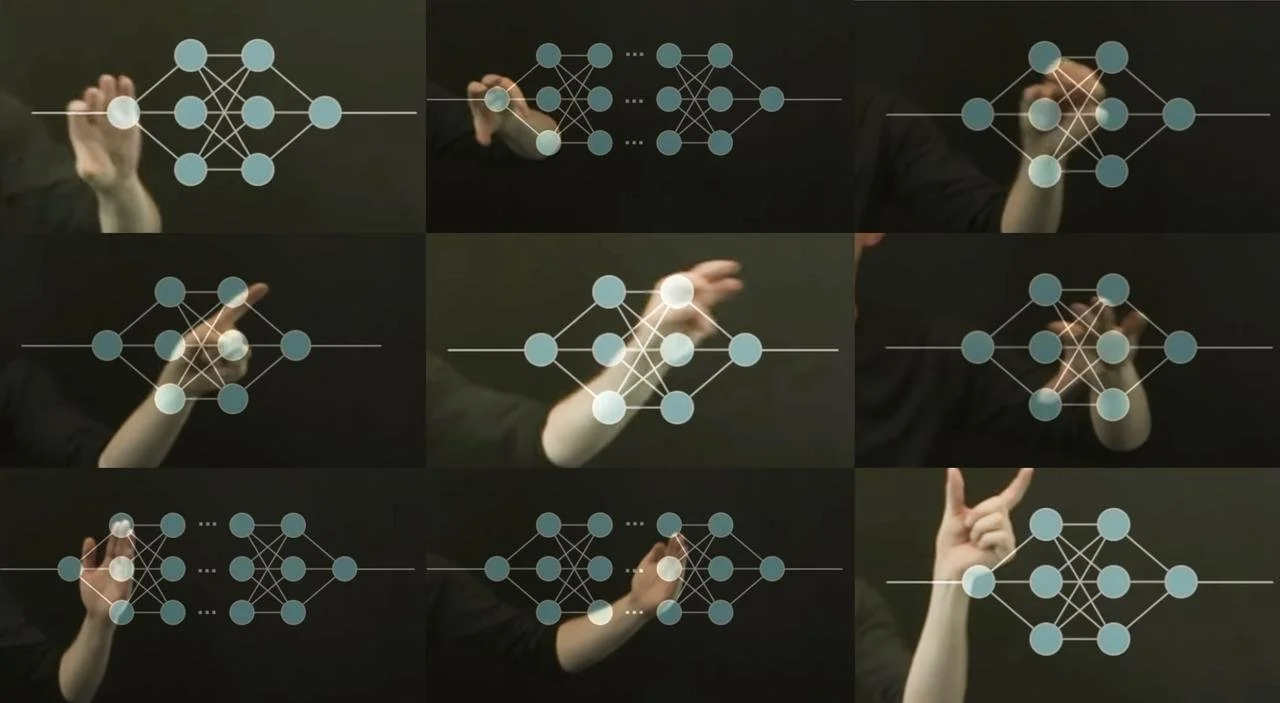How Nubia is changing data-driven journalism
Meet Nubia, an AI-powered platform revolutionising data-driven journalism. Learn how the JournalismAI Fellowship helped Joshua Olufemi bring an idea to life, creating a resource that transforms complex data into engaging stories for journalists and researchers alike
Picture credit: Alexa Steinbrück / Better Images of AI / Explainable AI / CC-BY 4.0
Joshua Olufemi, founder and managing director of Dataphyte, entered the JournalismAI Fellowship in 2022 with a compelling idea: to create a platform, Nubia, to help journalists turn data into engaging stories.
Olufemi applied for the Fellowship with Emmanuel Alawode, a Full-stack developer from Dataphtye. Their concept involved harnessing AI to work with the "3S" data, socioeconomic, satellite, and sensor data to generate easy-to-digest articles and policy insights for journalists and researchers. They aimed to make complex data simple and understandable.
By the end of the Fellowship, Olufemi, and Alawode had not only turned this idea into reality but also built a platform with the potential to change how journalism is done in Africa. The key was making AI accessible to journalists, especially those who weren't data experts.
The Fellowship's Role in Shaping Nubia
Olufemi’s reason for joining the Fellowship was clear: he wanted to refine their idea, get the resources to make it work, and get their hands dirty.
“We also thought it would be an opportunity to understand the workings and the application of AI in journalism,” he said. Additionally, the Fellowship could provide technical and software development support.
One key skill Olufemi developed during the Fellowship was the ability to bridge the gap between AI theory and practical application. “We learned to prototype moving from an idea to a proof of concept,” he explained. He learned how to turn ideas into tangible tools ensuring that Nubia wasn't just another academic project but a platform with real-world impact.
Another major learning was the importance of community and feedback. The Fellowship provided a network of AI experts and journalists who could offer guidance and constructive criticism. “We had a community of practice to fall back on, to bounce ideas, to test whatever product or tool that we were able to develop or started developing while we were a part of the Fellowship,” Olufemi said.
He said the Fellowship provided him with clarity on AI's possibilities and limitations. Olufemi said for a month, the team had been struggling due to conflicting data sources. However, the technical mentor, Gary Rogers, helped them navigate the problem.
Olufemi said “His insight led us to streamline our approach, focusing on socioeconomic data while keeping satellite imagery and sensor data as future developments. It was a great moment in terms of technical mentoring.'"
“The value that we continue to see from the Fellowship is the access to knowledge resources,” said Olufemi.
Adding that through the Fellowship they understood the nitty-gritty of case studies, use cases, possible challenges, and ethics. Explaining that at Dataphyte, their goal is to decolonise and democratise data that is inaccessible to journalists and researchers. “The Fellowship provided us with an avenue to achieve this quickly and inspired us to continue pursuing it in new and innovative ways,” he said.
“In terms of expectations that were presented to us, I would say that the Fellowship met everything as much as possible,” said Olufemi.
Testing Nubia in the Real World
Nubia was put to the test during a hackathon in November 2023. Olufemi and his team invited journalists, researchers, and developers to experiment with Nubia.
Back at Dataphyte, Olufemi is involved in various projects, expanding the use of AI in journalism and even in universities. Dataphyte is now training university lecturers to incorporate AI into their curriculums and is exploring the role of AI in Africa's election year.
A Fellowship with Lasting Impact
The Fellowship provided Olufemi with the skills, resources, and community needed to transform Nubia from an idea into a platform that supports journalists in creating impactful stories. It wasn't just about learning; it was about doing, and that made all the difference.
"We're now proactive rather than reactive in the use or application of AI in journalism," he said.
As Nubia grows, Olufemi is ready to take the platform and AI in journalism to the next level.

